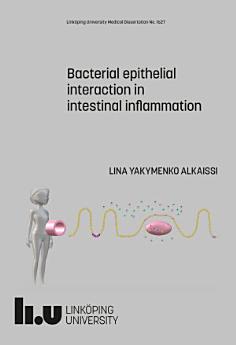Bacterial epithelial interaction in intestinal inflammation
About this ebook
The aim of the present thesis was to study bacterial epithelial interaction during inflammation in in vivo, ex vivo and in vitro models.
In the first project we found that that Faecalibacterium prausnitzii (FP), possess anti-inflammatory properties in the ileum of an in vivo DSS induced colitis mouse model.
In the second project, we discovered that infliximab, known to have anti-inflammatory effects by binding soluble TNF and blocking TNF receptors, reduces bacterial transcytosis across colonic biopsies of CD patients and decreases transcytosis and internalization in cell monolayers in vitro. Moreover, we demonstrated that HM427 bacteria, isolated from colonic mucosa of CD patients, uses lipid raft formations to penetrate the barrier under the influence of TNF in an in vitro model.
In project three, we demonstrated that LF82 bacteria, which is an adherent invasive strain of E.coli that has been isolated from the ileum of CD patients, exploits FAE of CD patients and non-IBD control patients to penetrate the barrier via the CEACAM6 receptor and long polar fimbriae. We further demonstrated that there is an increased expression of CEACM6 receptor in the FAE of CD patients, which leads to increased transcytosis of LF82 compared to non-IBD control group.
In project four, our results suggested that human α-defensin 5 significantly decreases the passage of LF82 bacteria in an in vitro and ex vivo models. Moreover, we demonstrated that CD patients have a lower expression of human α-defensin 5 in the crypts compared to the non-IBD control patients.
Taken together, our findings have given a novel insight into the etiology of CD and into the mechanisms involved in bacterial-epithelial interaction in CD.




